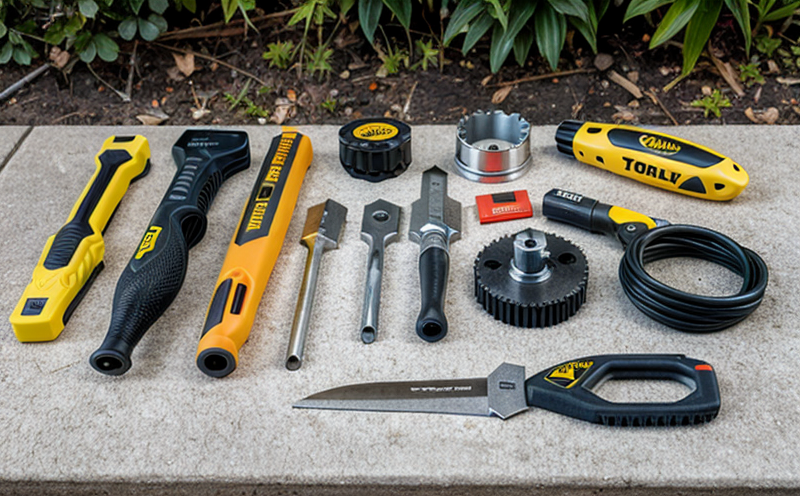Mechanical Strength Testing of DIY Tools
In the world of consumer products and product safety testing, mechanical strength testing is a critical component ensuring that DIY tools meet stringent safety standards. This service focuses on evaluating the structural integrity of DIY tools to ensure they can withstand real-world conditions without compromising user safety or performance.
Mechanical strength tests are conducted using specialized equipment designed to simulate various types of stress and strain that a tool might encounter during use. The primary objective is to assess how well the tool resists deformation, breakage, or failure under specified loading conditions. This process involves carefully selecting appropriate test samples, applying specific loads in controlled environments, and analyzing the results through advanced analytical techniques.
For DIY tools like drills, screwdrivers, wrenches, and other hand tools, mechanical strength testing ensures they meet international standards such as ASTM F1675 for power-driven hand tools. These tests help manufacturers identify potential weaknesses in design or materials before products reach the market. By adhering to these rigorous protocols, companies can enhance their reputation by delivering reliable, safe products that exceed regulatory requirements.
The testing process typically begins with specimen preparation, which involves selecting representative samples from each batch of manufactured units. Specimens must be free from defects and prepared in a manner consistent with industry best practices. Once prepared, the specimens are subjected to various loading conditions using hydraulic or pneumatic machines capable of generating precise forces.
During testing, engineers closely monitor displacement, strain, and other relevant parameters that indicate how much stress the tool can endure before failure occurs. After completing all tests, detailed reports are generated summarizing the findings along with recommendations for improvement if necessary. Compliance with international standards not only protects consumers but also helps manufacturers avoid costly recalls and legal issues.
- ASTM F1675: This standard provides guidelines for testing power-driven hand tools to ensure they meet specified strength requirements.
- EN 384: Focuses on safety aspects of screwdrivers, providing specifications for both manual and powered versions.
In conclusion, mechanical strength testing plays a vital role in maintaining high-quality standards within the DIY tool industry. By implementing this service, manufacturers can demonstrate their commitment to producing safe, durable products that satisfy regulatory expectations while enhancing overall customer satisfaction.
Industry Applications
- Safety Compliance: Ensures DIY tools comply with international safety regulations and standards.
- Quality Assurance: Identifies potential issues early in the production process, reducing costly rework or failures.
- R&D Innovation: Supports new product development by providing insights into material properties and design improvements.
- Supplier Evaluation: Assists in selecting reliable suppliers who consistently meet quality benchmarks.
Quality and Reliability Assurance
Through mechanical strength testing, manufacturers can ensure their DIY tools are robust enough to handle everyday tasks without compromising safety. This service helps companies maintain consistent quality levels across all production batches, thereby building trust among consumers who rely on these products for home improvement projects.
Regularly conducting such tests allows businesses to stay ahead of competitors by continuously improving product performance and durability. Moreover, it fosters innovation within the R&D department as engineers gain valuable feedback from testing results that can be used to refine designs or explore new materials.
Customer Impact and Satisfaction
Achieving excellent mechanical strength test results directly impacts customer satisfaction by delivering tools that are dependable and long-lasting. When consumers know their purchased DIY tools have undergone thorough testing, they feel more confident in using them for various projects around the house.
Positive word-of-mouth recommendations from satisfied customers can lead to increased sales and brand loyalty. Additionally, meeting international safety standards enhances a company's reputation as a leader in product quality and innovation within the DIY tool sector.





